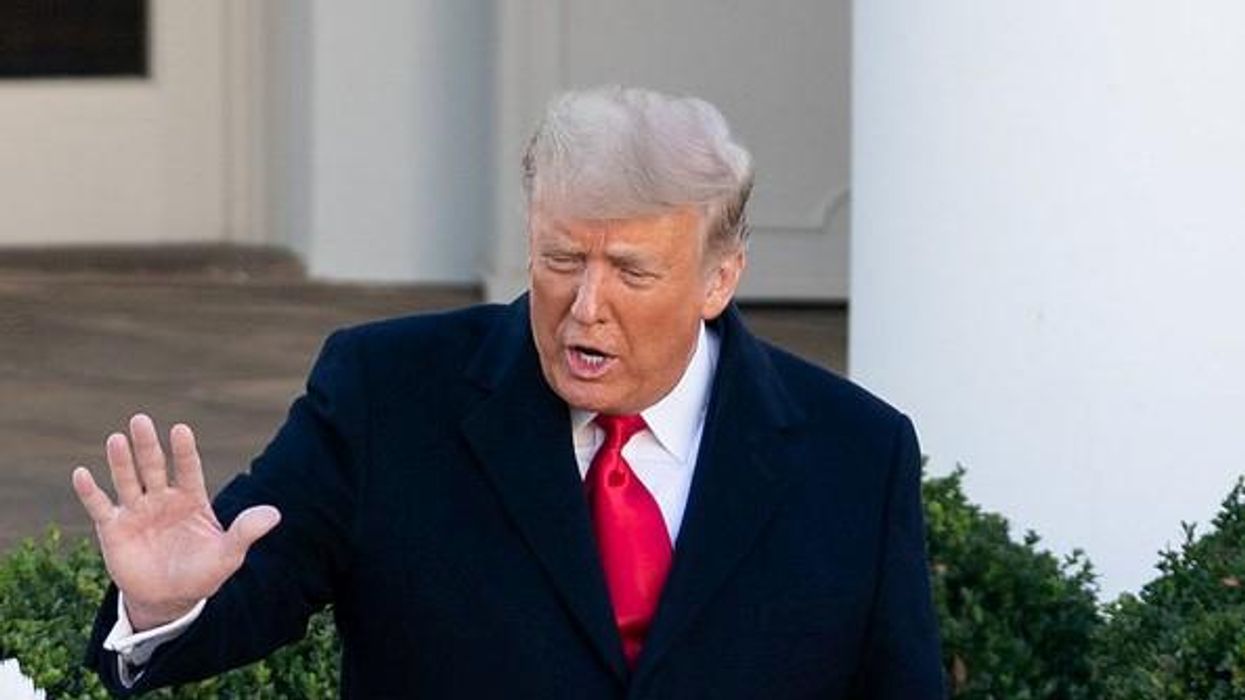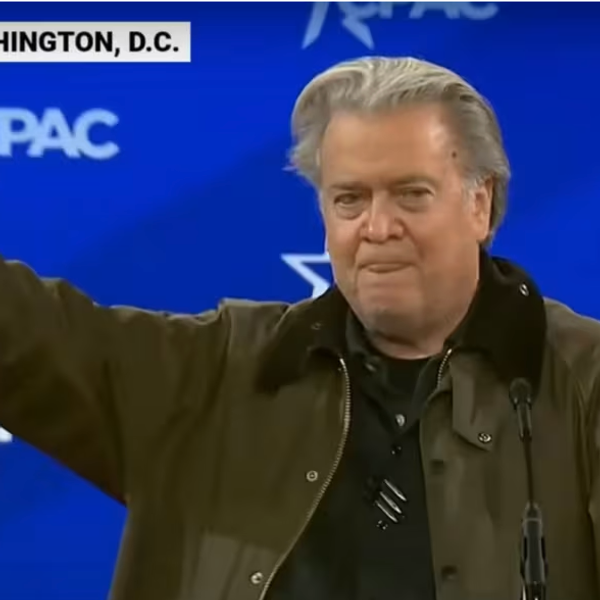Trump’s Self-Pardon Could Be A Service To The Nation
For the past four years, Donald Trump has regularly flouted the Constitution, laws and basic norms of presidential behavior, and he has gotten away with it. He has acted in faithful conformity to an inviolable principle: Anything he does is fine. As he said last year, "When somebody is president of the United States, the authority is total."
His incendiary speech last week before an angry crowd of delusional disciples in Washington is only the newest example of his self-proclaimed infallibility. "People thought what I said was totally appropriate," he said Tuesday, hearing things that are audible only to him.
But there is a plausible case that Trump was guilty of inciting the mayhem that followed when his legions marched to the U.S. Capitol and smashed their way in, some with violent intent. At this point, though, what's one more crime to a habitual offender?
During his presidency, Trump has assumed he is immune to accountability. His bulletproof shield is a longstanding Justice Department policy that says: "The indictment or criminal prosecution of a sitting President would unconstitutionally undermine the capacity of the executive branch to perform its constitutionally assigned functions." Taking that policy as gospel, special counsel Robert Mueller declined to pursue an indictment for obstruction of justice, while also declining to exonerate Trump.
But Trump's sturdy armor turns into a pumpkin on Jan. 20, and he will suddenly be staring down the barrel of criminal prosecution. He could face charges ranging from tax fraud to campaign finance violations to inciting insurrection. Bill Clinton, chafing at the isolation of the White House, jokingly called it "the crown jewel of the federal penitentiary system." Trump could be the first president to move into one of that system's less prestigious sites.
He has a couple of potential escape routes. One is to seek refuge in one of the many countries that have no extradition treaty with the United States — a group that includes Russia and Saudi Arabia, whose leaders he has coddled. He could live out his days in gilded luxury, beyond the reach of American courts.
More likely in the coming days, though, is for Trump to grant himself a pardon. It would be a final outrage, a sordid attempt to escape responsibility for his actions. It would be a gross repudiation of his constitutional obligation to "take care that the laws be faithfully executed." And it would perfectly reflect his corrupt character.
He tweeted in 2018, "I have the absolute right to PARDON myself." The surprise would not be if Trump pardoned himself. The surprise would be if he didn't.
But it would be a good thing if he did so. In the first place, it would make clear to everyone that he's guilty of conduct that could land him in prison. Previous presidents didn't have to weigh this option because they had no reason to think they would need it. Trump has every reason to think he will.
More important is that by pardoning himself, Trump would resolve the question facing the next administration on whether he should be prosecuted. A self-pardon, if taken as the last word, would give every future president a free pass for felonies. So the Justice Department would be obligated to challenge it — by letting one or more U.S. attorneys file an indictment.
The established position of the department, going back to Richard Nixon's administration, is that a president can't pardon himself. But since no president has tried it, the courts have never settled the issue. Legal scholars are divided, and not along ideological lines. The Constitution itself is silent.
Given the roster of atrocious precedents set by Trump, the question would need to be put to rest. He certainly can be indicted by state prosecutors, because a pardon would apply only to federal offenses. But it's important to establish whether a president can grant himself the authority to violate federal laws at his whim, with no fear of ever being held to account.
If not, then future occupants of the White House will have fair warning to refrain from crimes. If so, then we'll know a constitutional amendment is in order to prevent presidential impunity.
Trump says he has an absolute right to grant himself clemency. We should welcome the chance to prove him absolutely wrong.
Steve Chapman blogs at http://www.chicagotribune.com/news/opinion/chapman. Follow him on Twitter @SteveChapman13 or at https://www.facebook.com/stevechapman13. To find out more about Steve Chapman and read features by other Creators Syndicate writers and cartoonists, visit the Creators Syndicate website at www.creators.com.










